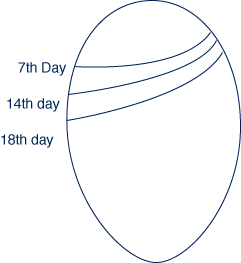- Apr 30, 2012
- 23
- 0
- 22
This is my 1st hatch. Following directions, I kept the hygrometer at 50-60%. After finding this forum, I have learned that can cause real issues.
Forum member phoenix 912 was kind enought to tell me about a thread called Update. The Great Debate: Is it the incubator or the egg?
In this thread they suggested that you try a dry lock down if your humidity has been too high during Days 1-18. So that is where I'm at right now. I removed the eggs from the egg turner (Day 18), have no added water and the hygrometer is reading 40%. I'm not sure how to get it to lower more. (I live in Arizona. The incubator is in my laundry room.)
Out of 10 eggs, we have seen 9 moving which is very exciting for us but what should I do now?
From what I've read, it looks like they could drown even though they made it to this point.
Thanks for any help you can offer.
Forum member phoenix 912 was kind enought to tell me about a thread called Update. The Great Debate: Is it the incubator or the egg?
In this thread they suggested that you try a dry lock down if your humidity has been too high during Days 1-18. So that is where I'm at right now. I removed the eggs from the egg turner (Day 18), have no added water and the hygrometer is reading 40%. I'm not sure how to get it to lower more. (I live in Arizona. The incubator is in my laundry room.)
Out of 10 eggs, we have seen 9 moving which is very exciting for us but what should I do now?
From what I've read, it looks like they could drown even though they made it to this point.
Thanks for any help you can offer.

